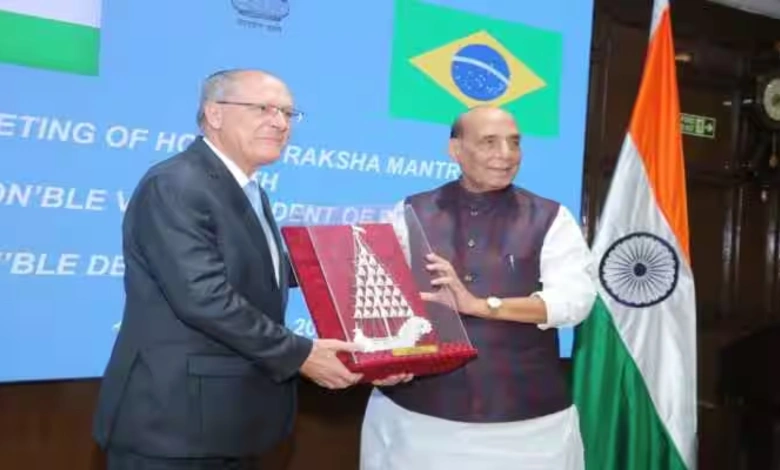India Bolsters Brazil’s Defenses with Advanced Akash Missiles Amid U.S. Tensions

New Delhi – In a bold move underscoring India’s growing role in global arms trade, the country has offered Brazil its indigenous Akash surface-to-air missile system, even as U.S. President Donald Trump voices sharp displeasure with the South American nation. The proposal emerged during high-level talks on October 16, 2025, when Indian Defence Minister Rajnath Singh hosted Brazilian Vice President Geraldo Alckmin in New Delhi.
The discussions, which also included Brazilian Defence Minister José Múcio Monteiro, focused on deepening bilateral defence ties. Singh formally pitched the Akash system as a key component of enhanced cooperation, alongside plans for joint weapons development, increased military drills, training exchanges, and personnel sharing. These efforts aim to solidify the strategic partnership between India and Brazil, established in 2003 and advanced through forums like the G20 and BRICS.
The Akash missile, engineered by India’s Defence Research and Development Organisation (DRDO), stands out for its affordability and effectiveness. This medium-range interceptor can engage and destroy aerial threats—including fighter jets, unmanned drones, and cruise missiles—at distances up to 45 kilometers. Its proven track record came to light in May 2025, when Indian forces deployed it successfully during Operation Sindoor. That counterterrorism campaign, launched after a fatal attack on pilgrims in Jammu and Kashmir’s Pahalgam district, neutralized multiple Pakistani drones and missiles, highlighting the system’s reliability in combat.
ALSO READ : India successfully tests Agni-Prime Missile from rail-based launcher
For Brazil, South America’s most populous and economically dominant power, the Akash represents a timely upgrade to its air defense arsenal. As its military seeks sophisticated, indigenous solutions, this potential acquisition aligns with broader needs for modern weaponry.
India’s outreach fits into its ambitious export drive. The government targets Rs 25,000 crore in defence sales by the end of 2025, building on successes like the recent supply of Akash units to Armenia. A deal with Brazil would further cement New Delhi’s transition from arms importer to exporter, showcasing the “Make in India” campaign’s impact on high-tech manufacturing.
Yet the timing adds geopolitical intrigue. Trump’s administration has ramped up economic pressure on Brazil. In July 2025, he slapped an extra 40% tariff on Brazilian imports—pushing the cumulative rate to 50%—citing unfair trade practices and policy disputes that he says undermine American interests. A recent phone call between Trump and Brazilian President Luiz Inácio Lula da Silva hinted at reconciliation efforts, but underlying frictions linger.
India’s engagement proceeds undeterred, signaling a commitment to independent foreign policy. Should the agreement materialize, it could broaden collaboration in defence, commerce, and innovation, though observers note possible headwinds from Washington.
This overture not only equips Brazil against evolving threats but also positions India as a pivotal player in reshaping global security dynamics—one missile at a time.




